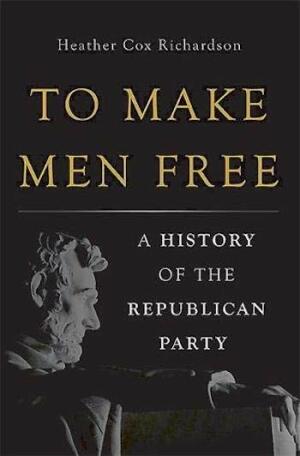To Make Men Free
A History of the Republican Party
Heather Cox Richardson
When Abraham Lincoln helped create the Republican Party on the eve of the Civil War, his goal was to promote economic opportunity for all Americans, not just the slaveholding Southern planters who steered national politics. Yet while visionary Republicans like Teddy Roosevelt and Dwight Eisenhower shared Lincoln’s egalitarian dream, their attempts to use government to guard against the concentration of wealth have repeatedly been undone by the country’s moneyed interests and members of their own party. Ronald Reagan’s embrace of big business—and the ensuing financial crisis—is the latest example of this calamitous cycle, but it is by no means the first.
In To Make Men Free, celebrated historian Heather Cox Richardson traces the shifting ideology of the Grand Old Party from the antebellum era to the Great Recession, showing how Republicans’ ideological vacillations have had terrible repercussions for minorities, the middle class, and America at large. Expansive and authoritative, To Make Men Free explains how a relatively young party became America’s greatest political hope—and, time and time again, its greatest disappointment.
Published by Basic Books
Praise for To Make Men Free
A readable and provocative account of the many paths that Republicans have taken to their current state of confusion.
— The New York Times Book Review
The most comprehensive account of the GOP and its competing impulses… an important contribution to understanding where we are today.
— Los Angeles Times
The book offers a lively survey of Republican politics in all its diversity, from the ‘transformational presidency’ of Abraham Lincoln (to borrow a 21st-century term) to the conservative ascendancy of Ronald Reagan.
— Washington Post
[Richardson’s] theory of the party’s historical cycle is intriguing.
— New Republic
Richardson makes a bold, pertinent argument…. A hard-hitting study that will surely resonate with ongoing attempts to regenerate the GOP.
— Kirkus
[An] opinionated history…Richardson aptly ends by wondering if the modern Republican Party ‘will find a way to stay committed to the ideals of its founders.
— Publishers Weekly
